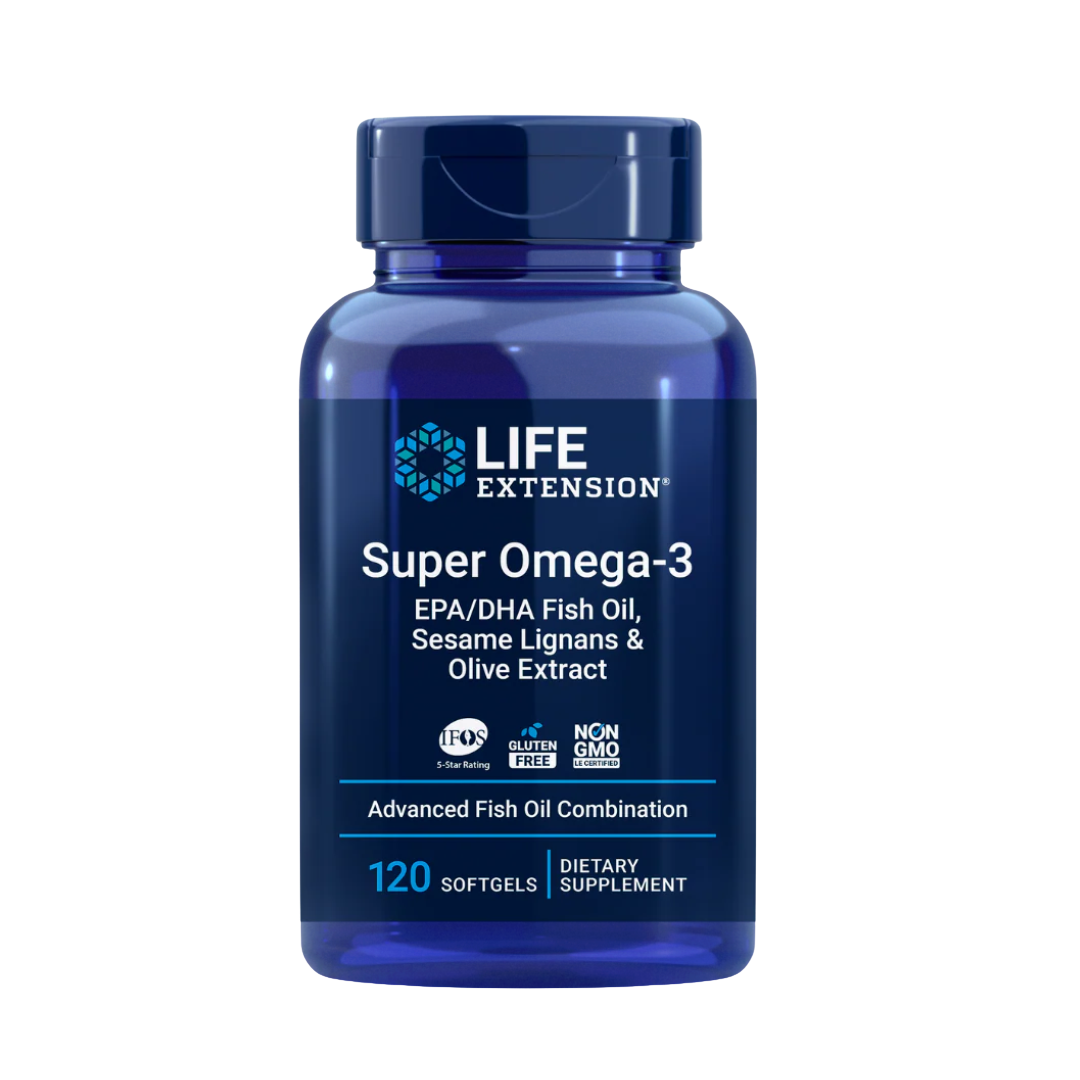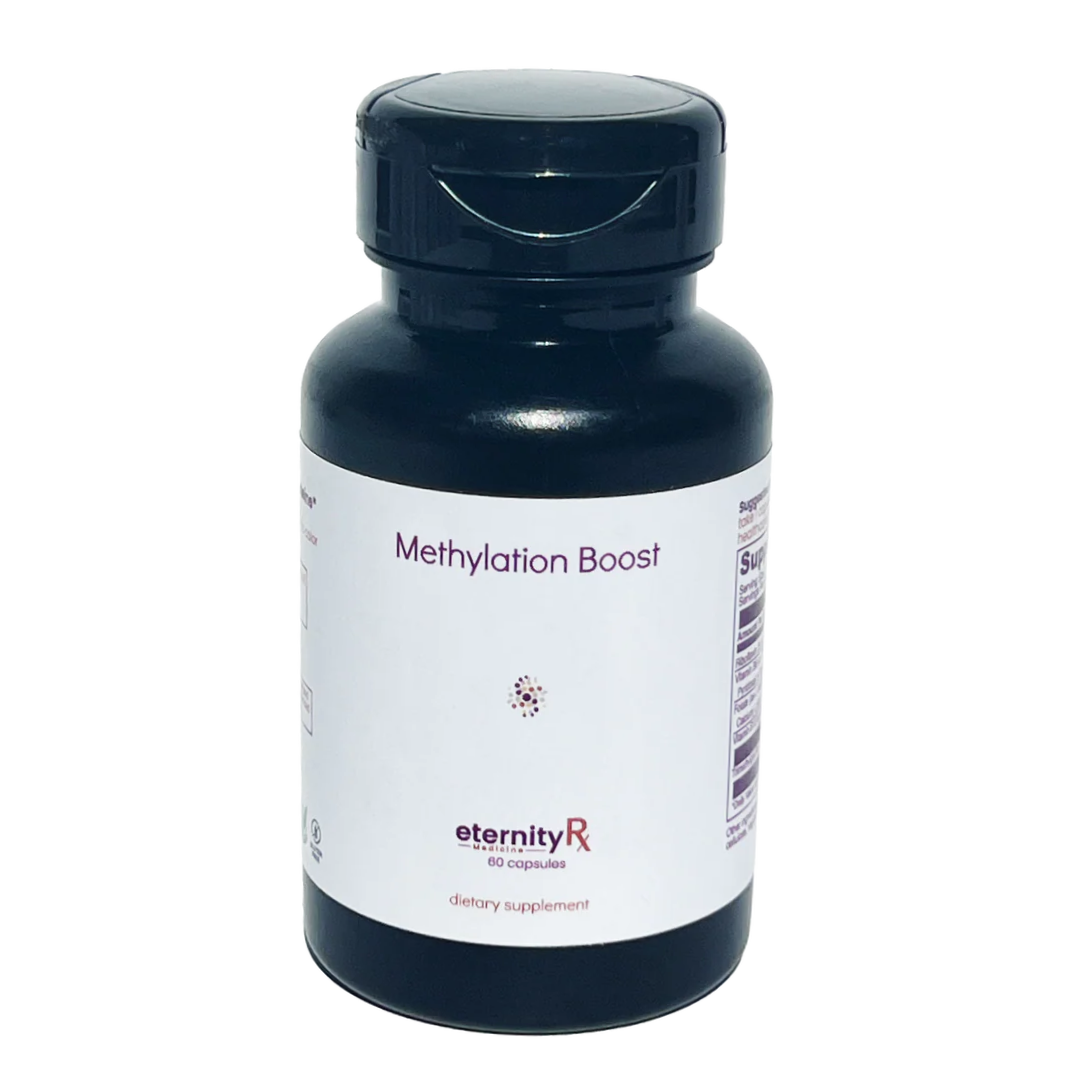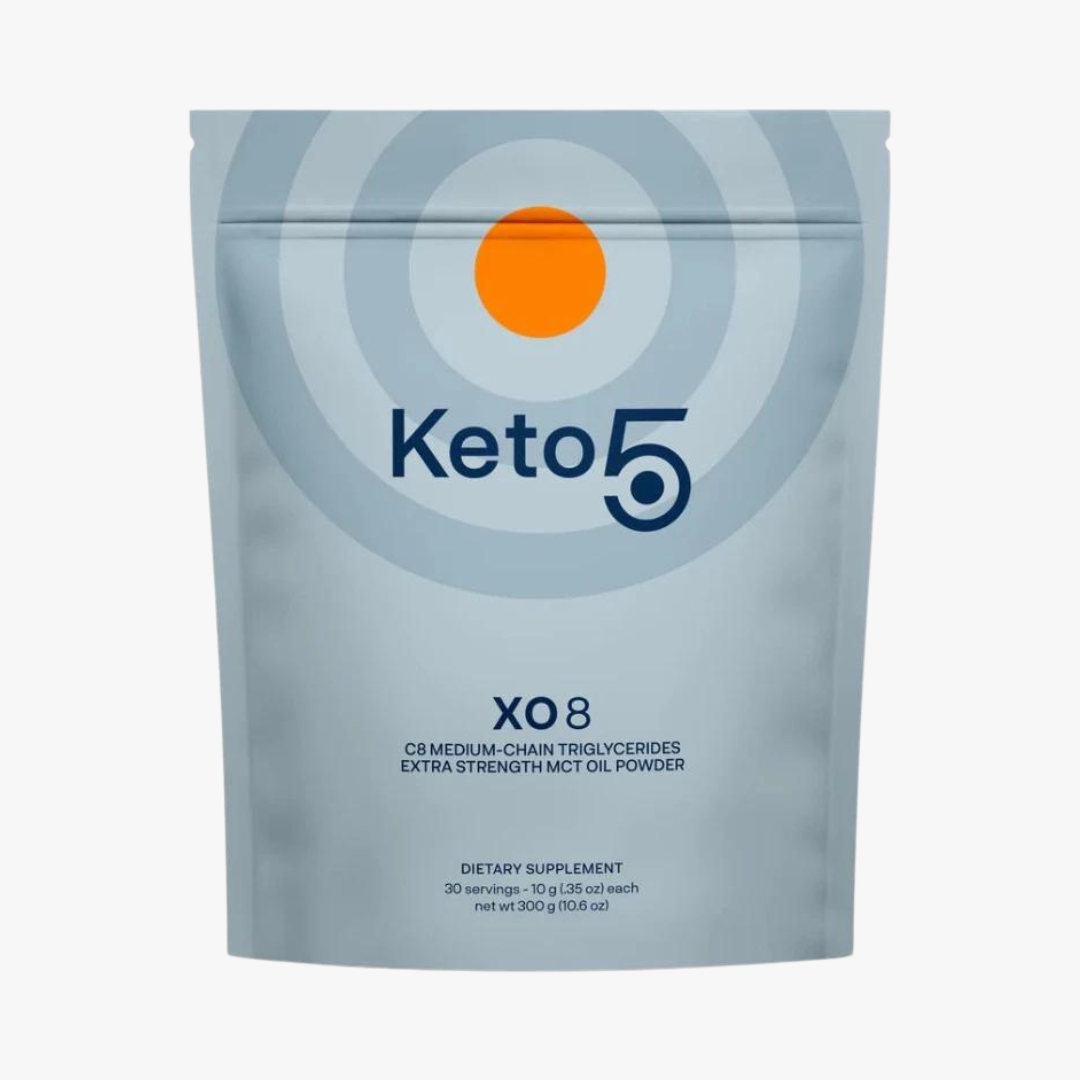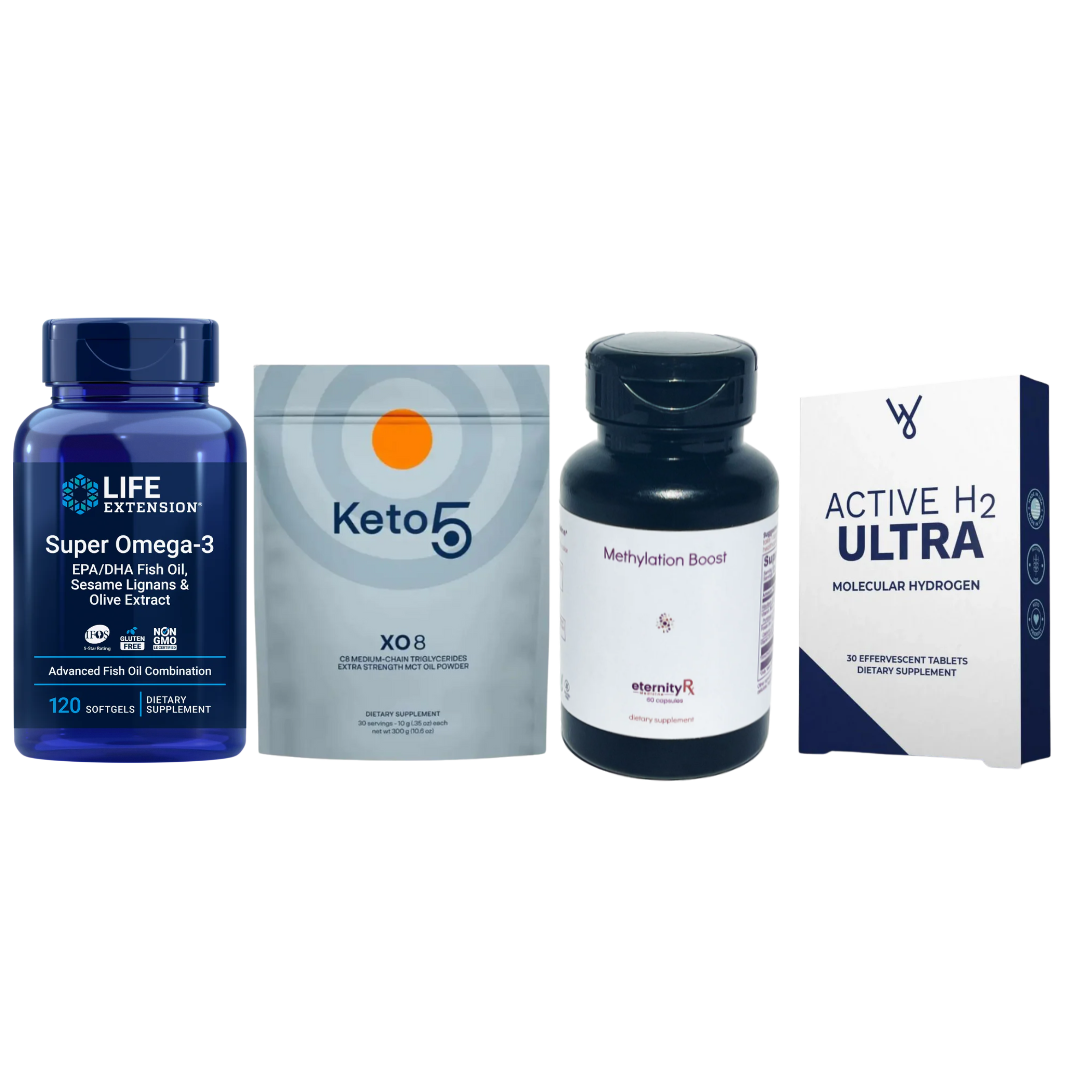Inflammation Control (Immune)
Inflammation is one of the mechanisms shared by age-related diseases - “inflammaging”. This is largely driven by mitochondrial signaling due to the presence of cell debris, misplaced cell molecules and misfolded and oxidized proteins.
Combat Chronic Inflammation and Enhance Longevity
The Inflammation Control (Immune) Bundle by Eternity Medicine Rx targets one of the 4 Primary Hallmarks of Aging. This bundle is designed to address the underlying causes of “inflammaging,” which is a driver of age-related diseases. Combining scientifically proven supplements, the bundle reduces chronic inflammation, improves immune function, and promotes metabolic health for healthier aging and enhanced longevity.
Why Focus on Chronic Inflammation?
Unlike acute inflammation, which is part of the body’s healing process, chronic inflammation persists over time and contributes to conditions like heart disease, diabetes, cancer, and autoimmune disorders. Metabolic inflammation (or “Meta-inflammation”) alters the balance of immune cells, leading to increased oxidative stress and mitochondrial dysfunction.
By targeting inflammation at its root, the Inflammation Control Bundle reduces the risk of chronic diseases, boosts energy, and supports healthier aging.
What’s Included in the Inflammation Control Bundle?
This bundle combines four targeted supplements, each addressing key mechanisms involved in inflammation and immune health:
Super Omega-3 (1 Bottle – 60 Pills)
A premium Omega-3 supplement packed with EPA and DHA fatty acids to combat inflammation.
Key Benefits:
- Reduces systemic inflammation by lowering inflammatory markers.
- Enhances cardiovascular and brain health.
- Supports immune response and cellular repair.


Methylation Boost
This powerful methylation support supplement includes activated B-vitamins (B2, B6, methylated B12), folate, and trimethylglycine (TMG) to help maintain healthy homocysteine levels, support detoxification, and promote brain-cardiovascular health.
Key Benefits:
- Sustains normal homocysteine levels, which supports cardiovascular health.
- Enhances cognitive function, mood, and nervous system support via methylated B12 and P-5-P (activated B6).
- Supports the folate cycle and bypasses common metabolic roadblocks with active folate forms and methyl donors.
- Assists detoxification pathways and helps the body manage methylation demands in stress, aging, and environmental exposures.
- Boosts energy production through improved methylation, aiding in efficient metabolic function.
Molecular Hydrogen (1 Bottle – 60 Pills)
A powerful antioxidant that neutralises oxidative stress and reduces inflammation.
Key Benefits:
- Suppresses inflammatory factors in tissues like the liver, brain, and lungs.
- Enhances mitochondrial function and reduces oxidative stress.
- Provides therapeutic support for inflammatory conditions.


Keto 5 – XO8 (MCT) (2 Bottles – 30 Pills Each)
A unique ketone supplement that moderates inflammation and supports energy metabolism.
Key Benefits:
- Inhibits the NLRP3 inflammasome, reducing inflammatory responses.
- Promotes metabolic flexibility and mitochondrial health.
- Provides sustained energy and improves brain function.
Frequently Asked Questions (FAQs)
The bundle takes a multi-faceted approach to combat chronic inflammation and support immune health:
- Regulates Homocysteine Levels
Homocysteine Resist lowers homocysteine, a molecule linked to increased inflammation and cardiovascular risk. - Neutralises Oxidative Stress
Molecular Hydrogen and Super Omega-3 reduce oxidative damage, a key driver of inflammation and aging. - Modulates Immune Response
Keto 5 helps balance the immune system by reducing inflammatory pathways like the NLRP3 inflammasome. - Enhances Mitochondrial Function
All four supplements work synergistically to support mitochondrial health, improving energy production and reducing metabolic inflammation.
- Addresses a Primary Hallmark of Aging: Chronic inflammation is a core mechanism of age-related diseases, making this bundle essential for longevity.
- Comprehensive Support: From lowering homocysteine levels to reducing oxidative stress, this bundle covers all aspects of inflammation control.
- Scientifically Backed: Formulated with clinically proven ingredients, the supplements provide measurable benefits for long-term health.
For best results:
- Morning: Take Homocysteine Resist and Keto 5 with breakfast to regulate inflammation and boost metabolic health.
- Midday: Take Molecular Hydrogen with lunch to neutralise oxidative stress and support mitochondrial function.
- Evening: Take Super Omega-3 with dinner to reduce inflammation and support cardiovascular health overnight.
This bundle targets chronic inflammation, supporting immune health, reducing oxidative stress, and promoting overall longevity.
It regulates homocysteine levels, reducing the risk of inflammation-related conditions like heart disease, stroke, and cognitive decline.
Molecular Hydrogen reduces oxidative stress, suppresses inflammatory factors, and provides therapeutic support for inflammatory conditions.
Omega-3 fatty acids (EPA/DHA) lower inflammatory markers and support cardiovascular, brain, and cellular health.
This bundle is ideal for anyone looking to reduce chronic inflammation, boost immune function, and support healthier aging.
Chronic inflammation, or “inflammaging,” accelerates aging by increasing oxidative stress, mitochondrial dysfunction, and immune dysregulation.
Yes, by reducing inflammation and balancing the immune response, the bundle provides support for autoimmune conditions.
Many users experience improved energy levels and reduced inflammation within a few weeks of consistent use.
Yes, the supplements are formulated for daily use. Consult a healthcare provider for personalised advice.
The bundle is available exclusively on our website. Shop now to start reducing inflammation and enhancing your longevity.
Get the Inflammation Control Bundle Today
Protect your body from the damaging effects of chronic inflammation with the Inflammation Control Bundle. This comprehensive solution supports immune function, reduces oxidative stress, and promotes healthier aging. Shop now to take control of your inflammation and enhance your longevity.

